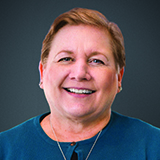For many years—decades, really—I have been receiving various peer-reviewed publications from the professional organizations of which I am a member. Over the years, I have come across peer-reviewed articles in these journals and felt compelled to circulate them to specific members of our multidisciplinary team at Johns Hopkins. Why? Because these articles contain information that is important to our practice, but they are tucked away in peer-reviewed journals that many of us ordinarily would never see.
For example, as a member of the Society of Surgical Oncology, I receive the Annals of Surgical Oncology. This journal has content that is applicable to oncology nurse navigators. It also frequently contains articles that directly or indirectly affect breast reconstruction practices. There are articles about neoadjuvant chemotherapy and what surgeries are reasonable to consider after chemotherapy has been completed.
Generally speaking, plastic surgeons and medical oncologists don’t routinely come across this information. We have become so specialized, which is valuable from a practitioner’s perspective and does result in higher survival rates among their patients for those who specialize in a specific type of cancer; however, with such specialization we have lost the ability to share an integrated body of knowledge as a team.
The fields of rehabilitation medicine, radiology, and palliative care all have their own professional organizations and accompanying peer-reviewed journals. However, the wealth of information contained therein does not reach all of the healthcare professionals who would benefit from seeing relevant evidence-based original research articles, reviews of the literature, and so forth. All of these practitioners are striving to continuously improve the patient care experience from a survival, quality-of-life, and psychosocial perspective. The Association of Community Cancer Centers has articles about healthcare economics, the future of cancer care, and best practices, and I would wager that very few of you have ever laid eyes on their journal; your administrator and CEO probably have, though.
The Academy of Oncology Nurse & Patient Navigators (AONN+) became the professional organization for navigators as a result of the need for an organization that could provide training, education, networking, and peer-reviewed content via our publications so that everyone involved in navigation or striving to improve their skills would have a “professional home.” I take great pride in having had a pivotal role in making that happen.
Our peer-reviewed journal, the Journal of Oncology Navigation & Survivorship (JONS), however, is likely only read by our membership—you. Please consider sharing this journal with others who are part of your multidisciplinary team. Also consider coauthoring an article that comes from the vital work that you are doing at the cancer facility where you navigate patients. Believe me when I say that when physicians see that there are peer-reviewed journal articles about navigation and survivorship, they will read them and learn from this new exposure to our world.
In addition, ask your faculty and colleagues what journals they receive, and whether they would be willing to share them. Wouldn’t it be great to have a central repository of journals so that you and other members of your multidisciplinary team can learn from one another’s professional organizations’ knowledge and insights to improve the quality of care we provide? It could also enable others to better understand what we mean when we say, “I navigate patients with cancer.”
So at your next Tumor Board meeting, ask the team members what professional organizations they belong to, which journals are affiliated with those organizations, and whether they would be willing to exchange information that is pertinent to the team. Be sure to tell them about your professional journal, JONS, and strive to pique their interest in learning more about our navigation world—a world in which all of them participate in some way, whether they realize it or not.
Make it one of your personal goals to learn more from your peers, and for your peers to learn more from you; that affects patient care. Also, establish a goal (you can do this!) to organize a small group of your team members who are willing to write an article for submission to JONS, and perhaps even articles for the other peer-reviewed journals alluded to previously. In the meantime, we will continue to work to bring you pertinent information about cancer care that will have an impact on your navigation and survivorship work.





